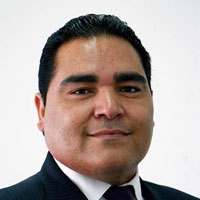Escalating Nuclear Tensions: Iran and Global Powers
The Middle East faces rising nuclear tensions as Iran potentially reaches a nuclear turning point and global powers respond.
Published June 05, 2024 - 00:06am

Image recovered from shorouknews.com
The recent escalation of conflict and diplomatic turbulence in the Middle East has brought the issue of Iran's nuclear ambitions to the forefront of international attention. With the backdrop of hostilities between Iran and Israel, developments surrounding Tehran's nuclear program are unfolding under increased scrutiny.
The International Atomic Energy Agency (IAEA)'s Board of Governors, which convened last Monday amidst heightened concerns, grappled with the Iranian nuclear crisis. A significant move by the European troika—comprising France, Britain, and Germany—was to table a resolution condemning Iran for its lack of cooperation with the IAEA, citing the 'very grave' situation and Tehran's obstruction of efforts to verify the peaceful nature of its nuclear activities.
This stance has been met with stern threats from Tehran. High-ranking Iranian officials have vehemently warned of serious repercussions if European countries continue to adopt an adversarial position in the IAEA's council, heightening uncertainties regarding Iran's actual progress towards acquiring nuclear weaponry.
Rafael Grossi, the IAEA's Director-General, underscored Western concerns in his opening address, noting the agency's limited knowledge of Iran's nuclear production, including enriched uranium stocks, and the obstruction of inspections. According to Grossi, Tehran's obstructive behavior has persisted for over three years since it halted the Additional Protocol's application, thus curtailing the IAEA's complementary access.
While European frustration is palpable, the U.S. maintains a cautious demeanor, interpreting its reticence as a desire to avoid further destabilizing the Middle East as it endeavors to broker a ceasefire in the Palestinian territories. Additionally, American electoral concerns and the upcoming presidential elections in November appear to constrain its immediate actions.
Meanwhile, Qatar has expressed appreciation for the IAEA's role in contributing to areas such as agriculture, industry, health, and environmental conservation, showcasing a different facet of nuclear technology when applied for peaceful purposes. Qatar's commendation reflects a broader recognition of the IAEA's value in facilitating sustainable development and combating climate change through peaceful nuclear knowledge sharing.
Amid the tangle of geopolitical tensions, the role of the United States as a mediator in the Middle East is under significant scrutiny. Even as it maintains a guarded stance on the Iranian nuclear issue, Washington has not been inactive. Behind the scenes, efforts to revive the 2015 Joint Comprehensive Plan of Action (JCPOA), colloquially known as the Iran nuclear deal, have been underway, though they are fraught with complexities and setbacks. Reviving this deal is seen as a critical step towards curbing Iran's nuclear capability and reinstating rigorous monitoring by international authorities.
The JCPOA, which was abandoned by the former US administration in 2018, had established strict limitations on Tehran's nuclear program in exchange for lifting economic sanctions. Following its withdrawal from the deal, the U.S. reimposed sanctions, prompting Iran to begin breaching some of the deal's limits on nuclear activities. Negotiations for reentering the agreement have been a diplomatic tightrope, with domestic politics in the United States and the rigid stance of the Iranian government as potential hurdles.
The discussions surrounding Iran's nuclear program cannot be divorced from the broader regional conflicts. The power struggle between Iran and Saudi Arabia, proxy wars in Yemen and Syria, and the fraught political landscape within Lebanon and Iraq all influence diplomatic ballet around the nuclear issue. These conflicts reflect the deep sectarian and strategic fault lines that crisscross the region.
Despite this intricate web of hostilities, Russia and China, also members of the original JCPOA agreement, have called for de-escalation and a return to diplomacy. Their involvement highlights the multipolar challenge of addressing Iran's nuclear ambition, a scenario where each power has ample strategic interests at stake. Both countries have significant economic and political ties with Tehran and are therefore invested in a stable Middle East, albeit with different long-term goals than their Western counterparts.
On a parallel track, the domestic political context within Iran also plays a pivotal role in unfolding events. The Iranian leadership is grappling with public discontent exacerbated by economic struggles due to sanctions, the COVID-19 pandemic, and internal political rivalry. The government's foreign policy actions, particularly those concerning its nuclear aspirations, are often deeply intertwined with domestic politics and the need to consolidate power internally. Iran's upcoming presidential elections, scheduled for June 2023, could either bolster hardline positions or open avenues for renewed diplomatic engagement, depending on the outcome.
Global non-proliferation advocates and regional neighbors are concerned that a nuclear-armed Iran would trigger an arms race in the region, which is already suffering from too many conflicts. The need for a comprehensive and durable resolution to the Iranian nuclear issue has never been clearer, nor more urgent.
To frame the escalating stakes, the IAEA continues to play a vital role not only in monitoring nuclear developments but also in advocating for the peaceful use of nuclear energy. As Rafael Grossi continues to steer the IAEA through turbulent political waters, the world watches as traditional diplomacy is supplemented by more modern techniques, including satellite imagery and electronic surveillance, to keep tabs on Iran's elusive nuclear activities.
The coming months will be decisive in shaping the future of the Middle East's security landscape. As the international community seeks to bridge divides and foster constructive dialogue, the ultimate aim is to achieve a resolution that can assure peace and stability in the region, while preventing the proliferation of nuclear weapons. The path forward is mired in complexity, but the consequences of inaction could be far-reaching, affecting not just the Middle East, but global security as a whole.







